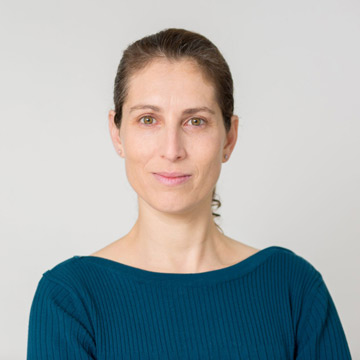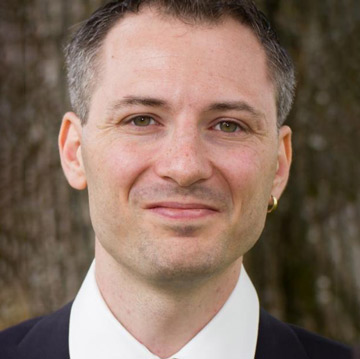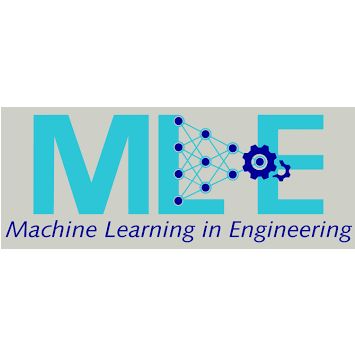machine learning
Events
Machine Learning for high-resolution snow science
The Arctic is warming at least two to four times as fast as the global average. This leads to an increase in extreme events and changes in the spatial patterns of snow cover, directly affecting transportation, health, and the economic situation of northern communities. Due to their increased vulnerability, accurate information on snow conditions is needed to adequately mitigate the impacts of climate change on these communities. However, there is a lack of high spatial and temporal resolution information on snow cover in the Arctic.
This seminar will present a methodology using machine learning algorithms trained with on-site airborne LIDAR for 1 meter resolution snow depth predictions, to create snow depth maps for use by Inuit communities and with their cooperation. Preliminary results show a R^2 of 0.95 for a Random Forest model using topographical features, while being orders of magnitude faster than physics-based models.

Machine Learning in Practice (intermediate level)
learn_bAIome offers workshops and trainings in biomedical AI/data science with tailored formats that take into account background, programming skills and intensity to provide unique, focused, and effective courses. These courses are free and open to students, clinicians, and researchers across academic institutions in Hamburg.
This workshop is open to students, researchers, and clinicians wanting to learn how machine learning is applied for biomedical datasets, the different classes of machine learning algorithms that may be used, as well as the best practices in selecting and evaluating algorithms, and their limitations. The aim of the course is to provide concepts and tools to navigate the use of machine learning in the biomedical landscape. The course will use biological datasets and there will be hands-on components as well as discussions. Participants should already have taken an introduction to machine learning and be familiar with Python programming. The workshop will be in presence and therefore each participant should bring their own laptop (no ipads).
Topics
- Taxonomy of machine learning algorithms
- Linear regression, logistic regression and related methods
- Decision trees
- Support Vector Machines
- Bias & Variance, curse of dimensionality
- Representation learning
- Neural networks and deep learning: MLPs, transformers, CNNs
- Applications to RNAseq and imaging data

Machine learning of MCMV infection dynamics - BNITM seminar series "AI in Biology and Medicine".
bAIome Center for biomedical AI (UKE) and Bernhard Nocht Institute for Tropical Medicine (BNITM) will host the seminar series entitled “AI in biology and Medicine”. This series aims to capture a broad audience and promote cross institutional collaboration. Our expert speakers will give an overview and insight into particular AI/data science methods being developed in key areas of biology and medicine. We will have drinks and snacks following each seminar to facilitate exchange.
Lorenz Adlung, I Medical Clinic and Polyclinic, UKE: Machine learning of MCMV infection dynamics
For further details and hybrid links, please go to the webpage AI in Biology & Medicine

Mapping connectivity for saving lives: The early warning connectivity map (EWCM)
Despite the global expansion of mobile and internet networks, critical connectivity gaps persist – particularly in areas most vulnerable to natural hazards and other emergencies. Reaching these populations with timely early warnings remains a pressing challenge for achieving the UN Early Warnings for All (EW4All) initiative.
Approximately 97.9% of the world’s population is covered by mobile network technology, gaps remain, leaving millions without reliable access to life-saving communications.
To address this challenge, the Telecommunication Development Bureau (BDT) of the International Telecommunication Union (ITU), in partnership with Microsoft AI for Good Lab, Planet Labs and the Institute of Health Metrics and Evaluation (IHME) at the University of Washington, has developed the Early Warning Connectivity Map (EWCM). This geospatial tool integrates connectivity and coverage datasets with high-resolution population density and hazard exposure datasets to produce granular, subnational maps that identify connectivity ‘coldspots’.
The EWCM helps ICT regulators and national stakeholders to visualize where connectivity investments or alternative communication solutions – such as radio or satellite – are needed to ensure access to early warnings. This session will showcase the EWCM using a case study from Liberia, illustrating its value for strengthening early warning systems nationally. Learn more
Institutions
- AI for Good

Meet the startups advancing accessible and affordable healthcare solutions
This is a global startup pitching session to find the most promising solutions using AI to address challenges in the healthcare sector. The competition is open to any innovative startups using artificial intelligence, machine learning, and advanced algorithms to improve the access and affordability of healthcare services around the world. It focuses on AI for global health improvement, making AI solutions accessible and impactful across diverse health systems, particularly in low-resource settings and through integration into existing healthcare systems.
Benefits for startups
The Winner of the session receives:
- AI for Good Innovation Factory Grand Finale ticket at the AI for Good Global Summit 2026
- Speaker Pass to attend the AI for Good Global Summit 2026
- Startup pod at the AI for Good Global Summit 2026
- Pitching opportunity in the Frontier Stage at the AI for Good Global Summit 2026
- Exclusive access to the AI for Good Innovation Factory Startup Accelerator Programme 2026
- Featured startup in the Innovation Factory Exhibition on the AI for Good Neural Network
- Exclusive follow-up mentoring from judges after the session
- Exclusive access to AI for Good Innovation Factory Alumni Network
- Networking opportunities with the UN and other potential business partners
Institutions
- AI for Good

ML deployment with AWS
Tentative agenda for the AWS Immersion Day on May 31st
|
Time |
Title |
Type |
|
10:00 am |
Introduction to ML on AWS: Amazon SageMaker and managed services. |
Presentation |
|
10:30 am |
Training and Deploying models on Amazon SageMaker |
Presentation |
|
11:00 am |
Account claiming and first lab |
LAB |
|
11:45 am |
Break |
|
|
12:00 pm |
Second Lab |
LAB |
|
12:40 pm |
Advanced topics (MLOps), and final Q&A |
Presentation |
It will be assumed that participants know basic Python, know how to work on a Jupyter Notebook, understand basic commands on libraries such as Pandas and SciKit Learn, and have a high level understanding of what is Pytorch/ Tensorflow. Each participant will be given an test AWS account that will be active until Friday afternoon so it is suggested that each participant works on its own laptop. We will do 2 labs together, but there will more labs available for those interested into doing further tests or exploring other features not covered during the 3 hours.
In order to participate, please send your first name and email address to adeline.scharfenberg@uni-hamburg.de

ML4CPS – Machine Learning for Cyber-Physical Systems
Cyber-physical systems are required to adapt to changing demands, often experience architectural changes over their lifetime, and generate a heterogeneous set of data. All of this leads to significant demands on monitoring and control software. This conference focuses on aspects of machine learning and related domains, such as predictive maintenance, self-optimization, fault diagnosis, re-planning, and reconfiguration. To build intelligent cyber-physical systems close cooperation between AI-research and industrial engineering is necessary. To facilitate such an exchange is the goal of this conference.
Register here: Registration
The 9th Machine Learning for Cyber Physical Systems (ML4CPS) conference offers researchers and users from various fields an exchange platform. The conference will take place March 2026, 19th till 20th at the Fraunhofer Forum in Berlin. Hosts are Fraunhofer IOSB, Helmut Schmidt University, Hamburg University of Technology, and the Chair of Production Engineering of E-Mobility Components (PEM) of RWTH Aachen.
In this year’s edition of the conference we also encourage submission of contributions from industry detailing scientific problems they encounter. To contribute, an extended abstract of a maximum of one page is required and must be submitted through the conference portal.
Institutions
- Fraunhofer IOSB
- Helmut-Schmidt-Universität Hamburg
- RWTH Aachen
- Hamburg University of Technology (TUHH)

MLE Days 2023 - Summer School and Conference for Machine Learning in Engineering
On September, 25th to 27th, 2023 the third MLE Days on machine learning in engineering will take place on the campus of the Hamburg University of Technology (TUHH). This year, it combines a summer school with a one-day startup-challenge. Participation is free of charge.
The Summer School teaches insights into the world of machine learning with a focus on engineering. It provides sessions about fundamentals of machine learning, concrete application examples, as well as hands-on sessions to try out and consolidate lessons learned. Keynote talks complete the program. Three parallel tracks are provided to allow participants to choose contributions adapted to their interest and machine learning experience. The use cases range from sensor and image processing, to electrical engineering and materials science, to aviation and maritime logistics. A poster session and an elevator pitch event allow participants to present their own work on machine learning topics. The best posters and pitches will be selected by a jury and awarded prizes. A networking event allows attendees to establish contacts with selected corporate partners and sponsors from start-ups and medium-sized businesses to large corporations. In the startup-challenge attendees learn how to turn machine learning ideas into a business.
The MLE Days are organized by the Machine Learning in Engineering research initiative of the TUHH (MLE@TUHH) in collaboration with the Helmholtz Center Hereon, DASHH, and the Career Center of TUHH, the AI.Startup.Hub, and AI.HAMBURG. The MLE initiative joins the competencies in the field of machine learning at the Hamburg University of Technology with the goal of transferring knowledge towards business and industry. Students, PhD students, postdocs, and professors from all disciplines of the TUHH are engaged together with colleagues from the Helmholtz Center Hereon to make methods and applications of machine learning known, to network, and to foster scientific exchange.
Join us to discover the new applications of machine learning in engineering practice!
Institutions
- Hamburg University of Technology (TUHH)

MLE Days 2025
The Machine Learning in Engineering (MLE) initiative integrates competencies and activities in the field of machine learning at Hamburg University of Technology (TUHH) and partner organizations from the Hamburg metropolitan area. Within the Machine Learning in Engineering (MLE) initiative, students, doctoral candidates, postdocs, researchers, and professors from all departments at the TUHH and from the partners are working interdisciplinary together. The aim is to conduct fundamental research particularly relevant for the development of new technology, thereby contributing to the digital transformation of the engineering sciences. In addition to basic research, the initiative aims at transferring knowledge to business and industry. Among a number of instruments for this kind of transfer, the annually organised MLE days provide a natural opportunity for education and knowledge exchange.
Registration: If you want to attend, please, send an email to Ulrike Schneider (in cc) with your name and affiliation. The registration is open until 01.03.2025. The number of participants is limited by the size of the lecture hall. For guaranteeing your participation and to make planning (particularly of the coffee breaks) easier, please register as soon as possible. Your data will only be used for organizing the MLE Days.
Program (preliminary):
09:00-15:00: Presentations by MLE-members and partners following the updated MLE structure here
15:00-17:00: Poster & Networking session
Catering: There will be a coffee break in the morning and afternoon with hot drinks and snacks. Lunch in the canteen is to be paid for by the participants themselves.
Poster in English until 14.02.2025.
The organizing committee reserves the right to reject registrations and poster contributions. If you have any questions, please do not hesitate to contact the organizing team via mle@tuhh.de .
Institutions
- Hamburg University of Technology (TUHH)

Modeling population dynamics with AI: A hands-on workshop with the Population Dynamics Foundation Model
Explore the transformative potential of the Population Dynamics Foundation Model (PDFM), a cutting-edge AI model designed to capture complex, multidimensional interactions among human behaviors, environmental factors, and local contexts. This workshop provides an in-depth introduction to PDFM Embeddings and their applications in geospatial analysis, public health, and socioeconomic modeling.
Participants will gain hands-on experience with PDFM Embeddings to perform advanced geospatial predictions and analyses while ensuring privacy through the use of aggregated data. Key components of the workshop include:
- Introduction to PDFM Embeddings: Delve into the model architecture of PDFM and discover how aggregated data (such as search trends, busyness levels, and weather conditions) generates location-specific embeddings.
- Data Preparation: Learn to integrate ground truth data, including health statistics and socioeconomic indicators, with PDFM Embeddings at the postal code or county level.
- Hands-On Exercises: Engage with interactive Colab notebooks to explore real-world applications, such as predicting housing prices using Zillow data and nighttime light predictions with Google Earth Engine data.
- Visualization and Interpretation: Analyze and visualize geospatial predictions and PDFM features in 3D, enhancing your ability to interpret complex datasets.
By the end of this workshop, participants will have a strong foundation in utilizing PDFM Embeddings to address real-world geospatial challenges.
Institution
- AI for Good

MT Marathon 2025 in Helsinki
This is the first call for participation on the 18th MT Marathon that will take place in Helsinki on August 25-29, 2025. The eighteenth edition of the MT Marathon will be organized by the Language Technology Research group at the University of Helsinki, Finland, with sponsorship of EAMT.
Each Machine Translation Marathon is a week-long gathering of machine translation researchers, developers, students and users featuring:
- MT Lectures and Labs covering the basics and tutorials.
- Keynote Talks from experienced researchers and practitioners.
- Presentations of research and open source tools related to MT.
- Hacking Projects to advance tools or research in one week or start new collaborations.
The registration is free of charge for EAMT members. The programme is still under construction.
Projects
We collect and share proposed projects before the Marathon, and the project topics are settled on the first day. Usually, most of the projects actually make it to the final presentation and some continue even (long) after the Marathon. More details will be added later.
Open Session
The MT Marathon will again host an open session with poster presentations related to MT/NLP research and open-source tools. We invite students, developers and researchers to submit short abstracts (1 page) featuring previously published results, open-source tool demos, and work in progress. Abstracts are lightly reviewed for topical scope, and all relevant submissions will be accepted for presentation.
Information about submission procedures will be announced later.
Institutions
- Technology Research group at the University of Helsinki

Paper Dragon or Machine Tamer: the AI Act’s Approach to Solving Ethical and Societal Concerns Around Generative AI
With the launch of ChatGPT last year and the ensuing debate about the benefits and potential risks of generative AI, also the work on the European AI Act shifted into a higher gear. The European Council and Parliament, working on their respective compromise texts, had to find ways to accommodate this new phenomenon. The attempts to adapt the AI Act went hand in hand with a lively public debate on what was so new and different about generative AI, whether it raised new, not yet anticipated risks, and how to best address a technology whose societal implications are not yet well understood. Most importantly, was the AI Act outdated even before is adopted? In my presentation I would like to discuss the different approaches that the Council and Parliament adopted to governing Generative AI, the most salient points of discussion and the different approaches proposed to solve some of the key ethical and societal concerns around the rise of generative AI.
Prof. Dr. Natali Helberger (Universiteit van Amsterdam, NL)
Natali Helberger is Distinguished University Professor of Law and Digital Technology, with a special focus on AI, at the University of Amsterdam and a member of the Institute for Information Law (IViR). Her research on AI and automated decision systems focuses on its impact on society and governance. Helberger co-founded the Research Priority Area Information, Communication, and the Data Society, which has played a leading role in shaping the international discussion on digital communication and platform governance. She is a founding member of the Human(e) AI research program and leads the Digital Transformation Initiative at the Faculty of Law. Since 2021, Helberger has also been director of the AI, Media & Democracy Lab, and since 2022, scientific director of the Algosoc (Public Values in the Algorithmic Society) Gravitation Consortium. A major focus of the Algosoc program is to mentor and train the next generation of interdisciplinary researchers. She is a member of several national and international research groups and committees, including the Council of Europe's Expert Group on AI and Freedom of Expression.
Institutions
- UHH

Predicting clinical response to treatment in inpatients with depression - BNITM seminar series "AI in Biology and Medicine".
bAIome Center for biomedical AI (UKE) and Bernhard Nocht Institute for Tropical Medicine (BNITM) will host the seminar series entitled “AI in biology and Medicine”. This series aims to capture a broad audience and promote cross institutional collaboration. Our expert speakers will give an overview and insight into particular AI/data science methods being developed in key areas of biology and medicine. We will have drinks and snacks following each seminar to facilitate exchange.
Fatemeh Hadaeghi,Institute of Computational Neuroscience, UKE
For further details and hybrid links, please go to the webpage AI in Biology & Medicine

Presentation Series: Train your engineering network
The presentation series “Train your engineering network” (TYEN) on diverse topics of Machine Learning addresses all interested persons at TUHH, from MLE partners as well as from the Hamburg region in general and aims at promoting the exchange of information and knowledge between these persons as well as their networking in a relaxed atmosphere. Thereby, the machine learning activities within MLE, TUHH and in the wider environment shall be made more visible, cooperations shall be promoted and also interested students shall be given an insight.
Organisers:
The series will be continued in the summer semester 2025. If you are interested in presenting, please contact the organizers.
The lectures will be in English.

Public Lecture Series: Taming the Machines. A Fallibilist Approach to AI Value Alignment
This lecture series invites viewpoints from different relevant disciplines to explore how we can preserve and advance human values through the development and use of AI technologies. Key questions include: How does AI impact our fundamental social, political, and economic structures? What does it mean to lead a meaningful life in the AI age? What design and regulatory decisions should we make to ensure digital transformations are fair and sustainable?
Prof. Dr. Ibo van de Poel, Delft University of Technology, NL
Value alignment is important to ensure that AI systems remain aligned with human intentions, preferences, and values. It has been suggested that it can best be achieved by building AI systems that can track preferences or values in real-time. In my talk, I argue against this idea of real-time value alignment. First, I show that the value alignment problem is not unique to AI, but applies to any technology, thus opening up alternative strategies for attaining value alignment. Next, I argue that due to uncertainty about appropriate alignment goals, real-time value alignment may lead to harmful optimization and therefore will likely do more harm than good. Instead, it is better to base value alignment on a fallibilist epistemology, which assumes that complete certainty about the proper target of value alignment is and will remain impossible. Three alternative principles for AI value alignment are proposed: 1) adopt a fallibilist epistemology regarding the target of value alignment; 2) focus on preventing serious misalignments rather than aiming for perfect alignment; 3) retain AI systems under human control even if it comes at the cost of full value alignment.
Institutions
- UHH

Public Lecture Series: Taming the Machines. About 'The Human' in Artificial Intelligence
For better or worse, the revolutionary potential of AI has reached public consciousness, with a growing recognition of the ways that AI might change how we live and work together. Indeed, the fabric of society is already changing in front of our very eyes, with powerful profiteers of AI rallying behind its supposed inevitability. The AI revolution is afoot and it seems as if there is nothing that we can do about it. However, Donald Trump’s emerging alliance with Silicon Valley’s “Magnificent Seven” provides a potent reason for pause and for sustained reflection on the path we are collectively treading.
To discuss how AI, like any other technology, is part of a societal process of struggle, negotiation, and cooperation, this lecture series brings together experts from philosophy, law, and cognitive science. How are technologies like AI grounded in social processes of knowledge production, design, and innovation? What is the environmental impact of AI systems and what ecological responsibilities fall to providers, politicians, and users? What is the human rights impact of AI technologies deployed in military and security contexts? And what, to speak with Nietzsche, renders AI ‘all too human’ after all?
Join us at our “Taming the Machine” lecture series this summer term to explore with our distinguished guests these and other related questions. To get the latest updates and details how to attend the lectures, please visit http://uhh.de/inf-eit.
Institutions
- UHH
People

Maya Topf

Philipp Neumann
Institutions
Max Planck Institute for the Structure and Dynamics of Matter
Scientific Support Unit researching the use of computation to accelerate and support research.

MLE Machine Learning in Engineering
MLE ist eine Initiative zur Bündelung der Kompetenzen im Bereich Machine Learning an der Technischen Universität Hamburg mit dem Ziel des Wissenstransfers in Richtung Wirtschaft und Industrie.

Universität Hamburg
Adeline Scharfenberg

Universität Hamburg
Adeline Scharfenberg

Universität Hamburg
Adeline Scharfenberg